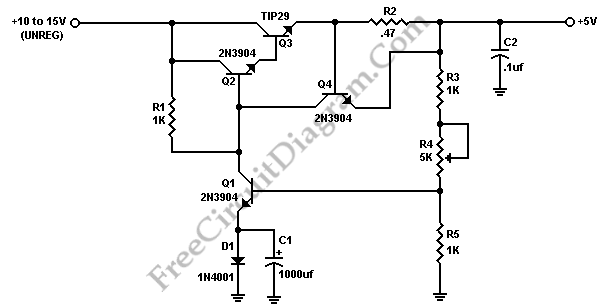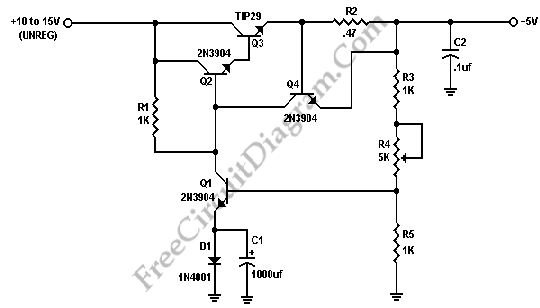Discrete Voltage Regulator

It is still possible to build circuits without IC’s and still achieve a high level of performance while integrated circuits have become a staple of all modern circuit designs. A high performance 5 volt voltage regulator built using discrete components that are readily available is shown on circuit diagram below.
This circuit not need an IC and only need to subtitued a 1N4001 in lieu of a zener diode. The regulator output voltage is varies by mere 4 %. It’s also has current limiting at 1.5 amps along with short circuit protection. This circuit closely matches the performance of the 7805 5 volt regulator IC with the exception of thermal shutdown.
We can adjust this circuit as a 12 volt regulator by adjusting R4 to the desired output voltage. The input voltage must be inside the range, 18V-25. Increase resistor R1 to 2.2K for best performance if you plan to use this circuit as a 12 volt regulator. The limit of the circuit still at 1.5 amps regardless of the output voltage setting. All resistors used in this circuit are ¼ watt except for R2 which must be at least a 2 watt type or larger. In this circuit, Almost any general purpose NPN transistor can be substituted for the 2N3904 transistors used. For Q3 we can used any similar TO220 type NPN switching transistor. A zener diode can be substituted for D1 but the voltage should be at least 2 volts lower than the desired output voltage if we desired. It’s require to use of zener diode to make resistors R3 and R4 decreased accordingly. [Source: Radio Amateur Society of Norwich]
